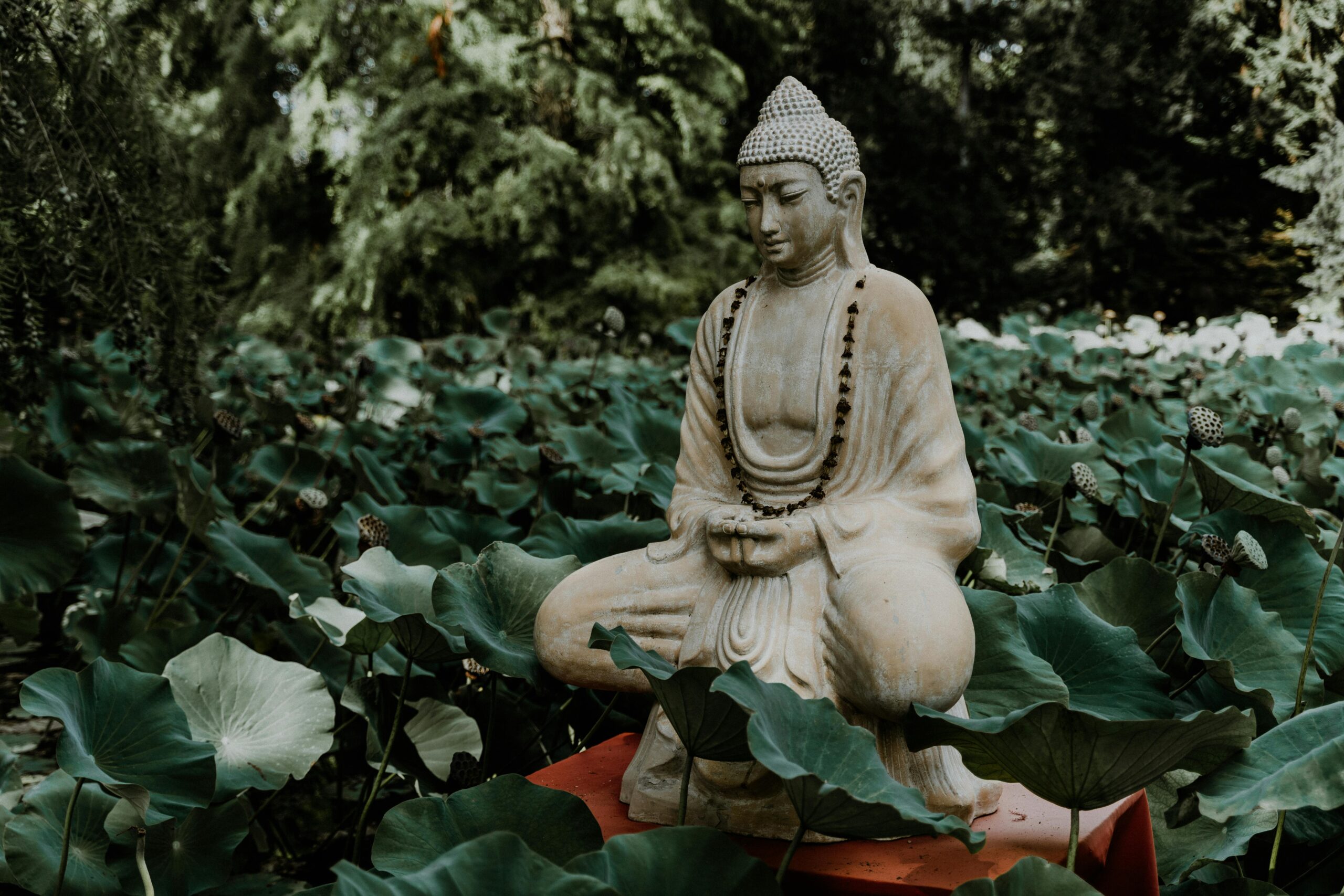Thailand is often recognized for its breathtaking temples, serene Buddha statues, and the soft hum of monks chanting in the early hours. This outward beauty, however, only scratches the surface of Buddhism’s profound influence on Thai life and culture. As the spiritual foundation for the majority of the Thai population, Buddhism’s principles are deeply woven into the nation’s values, customs, and social practices. From the way Thais greet each other to their approach to family, work, and social harmony, Buddhism is a guiding force that shapes daily life in ways both big and small.
Buddhism as Thailand’s Predominant Religion
Over 90% of Thailand’s population identifies as Theravada Buddhist, a branch of Buddhism emphasizing personal spiritual growth and understanding. Buddhism in Thailand is not merely a religion but a way of life that teaches compassion, mindfulness, humility, and respect for all living beings. For centuries, Buddhist teachings have been integrated into Thailand’s educational system, social practices, and legal framework, making it a core part of the nation’s identity.
Thai people are introduced to Buddhism at a young age, with many learning about the life of the Buddha, meditation practices, and the value of kindness and patience. The ubiquitous influence of Buddhism means that even Thais who do not practice the religion daily are shaped by its ethical framework and cultural practices.
The Role of Monks and Temples in Thai Society
Monks and temples (known as wats) hold a central place in Thai society. Monks, who dedicate their lives to spiritual practice, are highly respected and considered the spiritual guardians of the community. Throughout Thailand, temples are more than just places of worship; they serve as community centers, schools, and places of refuge for those in need.
Monastic Influence: Many Thai men undertake a period of monastic life, often during their early adulthood, as a rite of passage. Known as phra, these monks live under strict codes of discipline, practicing meditation and studying Buddhist teachings. This experience is believed to foster maturity and understanding, preparing them for the challenges of life.
Community Gatherings: Temples are integral to village and city life in Thailand. Festivals, weddings, funerals, and other important events are often conducted in temple grounds, reinforcing the bond between the community and Buddhism.
Alms Giving: Each morning, Thai Buddhists give food to monks in an act called tak bat. This act of alms-giving symbolizes the interdependence between monks and laypeople, where monks sustain themselves through community offerings, and laypeople earn spiritual merit through their generosity.
Buddhist Values in Thai Social Etiquette
Buddhist principles deeply influence Thai etiquette and social interactions. The Thai concept of “mai pen rai” (meaning “never mind” or “it’s okay”) reflects Buddhist teachings on acceptance, humility, and non-attachment. This attitude is seen in the way Thais handle social situations, emphasizing calmness, respect, and patience.
The Wai Greeting: One of the most recognizable aspects of Thai culture is the wai, a gesture of greeting made by placing the palms together and bowing slightly. The wai is not only a form of respect but also reflects Buddhist values of humility, showing reverence for others and acknowledgment of their presence.
Conflict Avoidance: Buddhism teaches compassion and understanding, encouraging Thais to avoid confrontation and strive for harmony. This principle is seen in the Thai aversion to aggressive behavior or “losing face,” as it’s considered disrespectful. Instead, calmness and respect are valued, creating a socially harmonious environment.
Family and Community Life Through a Buddhist Lens
In Thailand, family and community relationships are strongly influenced by Buddhist values, particularly the idea of karma and metta (loving-kindness).
Filial Piety: The concept of karma, the belief that actions have future consequences, encourages children to respect and care for their parents. This sense of duty and loyalty is central to Thai family life, where taking care of elderly family members is viewed as both an honor and a way to gain positive karma.
Community Support: Thais often participate in boon (merit-making) activities, such as donating to temples or volunteering. These acts of kindness foster a sense of community support and are believed to bring good karma in this life and the next. Festivals like Loy Krathong and Songkran often involve communal activities centered around temples, reinforcing bonds and encouraging unity among villagers and city-dwellers alike.
Influence on Art and Architecture
Buddhist philosophy and iconography are prevalent in Thai art and architecture. The grand temples, delicate murals, and intricate Buddha statues seen throughout Thailand reflect Buddhist themes of enlightenment, compassion, and the transitory nature of life.
Temple Architecture: Thailand’s temples are designed to inspire tranquility and introspection. With golden stupas, ornate carvings, and serene Buddha images, these structures invite visitors to experience a moment of peace and mindfulness. The architecture symbolizes the journey toward spiritual enlightenment, with elements like the chedi representing the Buddha’s teachings and the path to Nirvana.
Visual Arts: Buddhist symbols are woven into Thai visual arts, with paintings, sculptures, and crafts often depicting scenes from the Buddha’s life and teachings. Murals in temple walls frequently portray stories from the Jataka tales, which depict the Buddha’s past lives and convey moral lessons.
Meditation and Mindfulness in Daily Life
Meditation and mindfulness practices, core elements of Buddhism, are widely practiced in Thailand, not only by monks but also by laypeople. Meditation centers across the country offer programs that teach various forms of Buddhist meditation, helping individuals cultivate inner peace and clarity.
Meditation Centers: Many temples and dedicated meditation centers provide courses on mindfulness and insight meditation, open to locals and visitors alike. Practicing meditation is seen as a way to reduce stress, cultivate compassion, and connect with one’s spiritual self, values that resonate with people beyond the Buddhist faith.
Mindfulness in Daily Life: Mindfulness in Thailand is not limited to formal meditation sessions but is encouraged in daily life. Simple actions, such as eating mindfully, showing gratitude, or observing one’s thoughts, reflect Buddhist teachings that emphasize the present moment. This focus on mindfulness helps Thais approach daily challenges with greater patience and perspective.
Buddhist Festivals and Merit-Making Traditions
Thailand’s calendar is marked by various Buddhist festivals that bring communities together to celebrate and make merit, or boon. These festivals are opportunities for Thais to participate in rituals that honor the Buddha and gain spiritual merit.
Makha Bucha and Visakha Bucha: These important Buddhist holidays commemorate significant events in the Buddha’s life, such as his birth, enlightenment, and passing. During these days, Thais visit temples to make offerings, listen to sermons, and engage in meditation.
Songkran Festival: Songkran, the Thai New Year, is celebrated with water splashing, but it also has deep Buddhist significance. Thais visit temples to make merit, pour water over Buddha statues, and wash their elders’ hands as a sign of respect. This celebration is a symbolic cleansing of past misdeeds, promoting renewal and good karma for the year ahead.
Conclusion: Buddhism’s Enduring Legacy in Thai Culture
Buddhism’s influence on Thai daily life and culture is undeniable. As a philosophy, moral guide, and way of life, Buddhism provides a foundation of values that shape Thai society in ways visible and subtle. Through respect, mindfulness, and a strong sense of community, Thais continue to uphold Buddhist traditions that have been passed down for generations.
For visitors, understanding the role of Buddhism in Thailand offers a window into the country’s warm hospitality, gentle social etiquette, and deep sense of compassion. Whether seen in the morning alms-giving to monks or the mindful construction of temples, Buddhism is a quiet yet powerful presence that enriches the lives of people in Thailand and continues to attract those seeking a deeper connection to Thai culture.
Interesting Reads :








